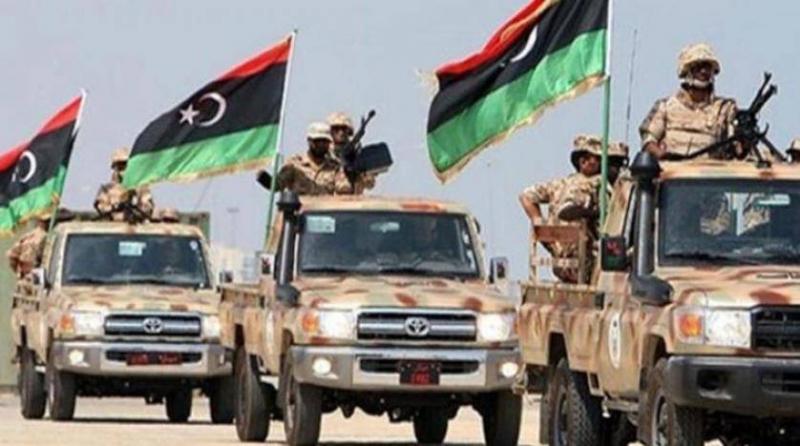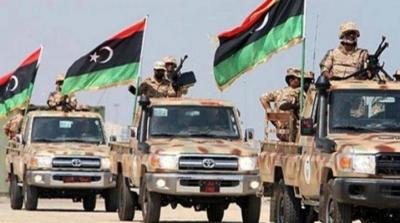The Eastern Libyan forces (Libyan National Army) led by Khalifa Haftar stated late yesterday, Friday, that they support a proposal to form a new interim government, which poses a challenge to the current administration in Tripoli. They added that they support the recommendations of the 6+6 committee, formed by the House of Representatives and the High Council of State, which proposed new laws to regulate elections. They urged the councils to agree on a new government.
Some factions within the divided Libyan political establishment accepted the committee’s recommendations, while others rejected them. It remains unclear whether a basis for elections can ultimately be established, and it is certain that the Prime Minister in Tripoli, Abdul Hamid Dbeibeh, will oppose the formation of any new government before elections.
Libya has experienced unrest since the NATO-supported uprising in 2011, and since 2014, the country has been divided between rival factions in the east and west. However, open conflict has largely ceased since the ceasefire was announced in 2020. The Government of National Unity in Tripoli, led by Dbeibeh, was formed through a UN-supported process in 2021 aimed at conducting elections later that year, which were canceled due to disputes over the rules.
The parliament in the east, allied with Haftar, has refused to grant Dbeibeh a mandate, but the new prime minister appointed by the parliament has not been able to replace the Tripoli government, leading to a prolonged political standoff. Diplomatic efforts have focused on persuading the parliament and the High Council of State, another legislative body, to reach a consensus on clear rules for conducting elections aimed at resolving the political impasse in Libya.
However, both the parliament's moves to amend the constitution and the 6+6 committee's efforts to establish election laws remain contentious. Critics argue that the political elite has little intention of holding elections that could unseat them and believe they are focusing more on controlling the government in Tripoli and its mechanisms to access state resources. Since early last year, Dbeibeh's opponents have attempted to exploit divisions among armed factions in western Libya to force him to step down, but his military allies have instead managed to reinforce their control in the capital.




